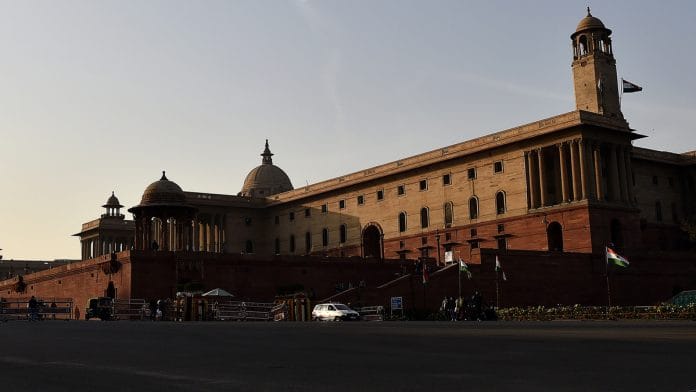New Delhi: The Union Ministry of Home Affairs on 4 March notified new rules for Overseas Citizens of India (OCI), giving legal teeth to the November 2019 guidelines it had issued regarding the benefits enjoyed by OCI cardholders.
This fresh notification, issued in exercise of the powers conferred by Sub-Section (1) of Section 7B of the Citizenship Act, 1955, will replace three previous ones that were issued on 11 April 2005, 5 January 2007 and 5 January 2009.
While the notification extends some additional benefits to OCIs in terms of admission to professional institutions, it prohibits them from undertaking certain activities without prior permission of the Foreigners Regional Registration Officers (FRRO).
Under the new notification, special permission is required for “missionary, Tablighi, mountaineering or journalistic” activities. The previous three notifications did not specify the requirement for such a permission.
The new notification also provides an OCI cardholder parity with Indian citizens in the matters of tariffs in air fares in domestic sectors in India and entry fees to be charged for visiting national parks, wildlife sanctuaries, the national monuments, historical sites and museums in India.
OCI cardholders are foreign passport holders of Indian origin, but are not citizens of India.
Also read: Increase H-1B predictability — India asks US following proposal to scrap visa lottery system
Who are Overseas Citizens of India?
There are a few categories of Indian citizens (except those living in Pakistan and Bangladesh) who are eligible to hold an OCI card.
These are: A person who is a citizen of another country, but a citizen of India at the time of, or at any time after, the commencement of the Constitution; a citizen of another country, but was eligible to become a citizen of India at the time of the commencement of the Constitution; a citizen of another country, but belonged to a territory that became part of India after 15 August 1947; a child or a grandchild or a great-grandchild of such a citizen.
A foreigner who is married to an Indian citizen or an OCI cardholder and whose marriage has been registered and subsisted for a continuous period of not less than two years immediately preceding the presentation of the application can also get OCI status.
Technically a citizen of another country, an OCI cardholder is granted several rights and freedoms enjoyed by Indians.
In operation since 2005, the Government of India’s OCI scheme provides facilities such as life-long visa and exemption from registration with FRRO. It also entitles them to a lot of the same benefits as non-resident Indians (NRIs) and Indian citizens.
When compared, NRIs enjoy more benefits than an OCI cardholder. For example, NRIs have full voting rights for all elections. An NRI can stand for public office and even purchase agricultural land. NRIs can conduct research work without any prior permission.
India does not allow dual citizenship and OCI is the closest it comes to. OCI is akin to a lifelong visa to live and work in India. Unlike visitors on other long-term visas such as work permits and student visas, OCI cardholders do not have to register with the local FRRO.
What changes now?
With the new notification, an OCI cardholder will now have to take special permission to undertake research work. Any missionary or Tablighi or mountaineering or journalistic activities, internship in any foreign diplomatic missions or foreign government organisations in India or taking up employment in any foreign diplomatic missions in India will need permission.
Prior permission will also be needed if an OCI cardholder wants to visit any place that falls within the protected or restricted or prohibited areas within India as notified by the Central government of any competent authority.
It is to be seen whether this regulation will impact the government’s 2018 decision that made an OCI eligible for appointment as permanent teaching faculty in a premier educational institution such as IIT, National Institutes of Technology, IIM, Indian institutes of Science Education and Research, Indian Institute of Science, all Central universities and new AIIMS established under the Pradhan Mantri Swasthya Suraksha Yojana. Such recruitments are governed by Section 7B 2(I) of the Citizenship Act, 1955.
The notification has also restored the lifelong visa to OCIs that was temporarily suspended in March in the wake of the Covid-19 pandemic. The suspension had invited protests from OCIs who were stopped from flying to India on the special flights arranged by the government under the Vande Bharat Mission.
A new clause has been added through the notification that will now make it compulsory for an OCI cardholder to intimate the FRRO by email whenever there is a change in permanent residential address and in their occupation.
The 4 March notification also permits OCI cardholders eligible for appearing in all-India entrance tests such as NEET for medical courses, JEE — both Main and Advanced — for engineering or any other tests. However, this will only be against any NRI or supernumerary seat that is over and above the sanctioned intake approved by the appropriate authority and government, from time to time.
An OCI cardholder shall not be eligible for admission against any seat reserved exclusively for Indian citizens. The government has always taken a stand that OCI cardholders had parity with NRIs and can lay claim only to the NRI quota seats based on the all-India tests.
In a related case pending before the Karnataka High Court, the Centre had in March 2019 maintained the same stand. However, on 15 December 2020, the HC directed that students under the OCI category are to be considered citizens of India for admission to professional courses and not restrict their admissions only under the NRI quota.
Also, now an OCI cardholder can apply for inter-country adoption subject to compliance of procedure laid down by the competent authority.
(Edited by Sanghamitra Mazumdar)
Also read: Indian Embassy in US to accept online applications for visa, OCI through VFS Global






